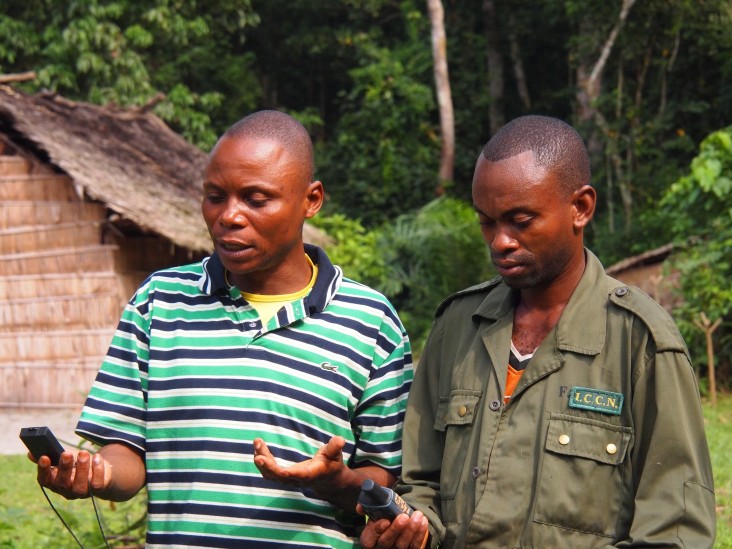
Bonobos are a great ape species found only in the Democratic Republic of Congo (DRC). They are an important part of the ecosystem but threatened by poaching and inadequate natural resource management.
In the Salonga National Park in the Congo Basin, USAID supports the work of the Zoological Society of Milwaukee (ZSM) to protect the endangered ape. The park is a World Heritage Site and critical to the protection of biodiversity in this relatively intact lowland tropical forest. "Our studies confirm that the Salonga Park is the world's largest protected expanse of bonobo habitat and that poaching is the greatest threat to wildlife in the park, including bonobos," says the program's director Gay Reinartz.
The field team is based at Etate, a former hunting camp that has been transformed into a research station and patrol post. In addition to research on the bonobo, USAID support trains and supplies park guards to increase the effectiveness of anti-poaching patrols in partnership with Congolese institutions.
USAID also enhances local communities' interest and involvement in conservation by supporting local primary schools and adult literacy classes, and assisting an agricultural cooperative to help reduce local reliance on bushmeat hunting in the park. This multifaceted approach has resulted in a sustained reduction in poaching in the bonobo-rich sector of Etate for the past 10 years and has become a model for guard-based bio-monitoring and habitat protection.
Recently, the ZSM received the International Conservation Award by the Association of Zoos and Aquariums for its successful promotion of species restoration, habitat preservation, and biodiversity protection in the DRC.
"We are honored by the recognition of our efforts," says Reinartz. "USAID provides the core infrastructure support that enables us to establish operations in remote regions and build the capacity of the Congolese government and local communities to sustainably manage their forests and wildlife resources."
In recognition of the important role of the Congo Basin forest and amidst the increasing pressures it faces, USAID works to reduce the rate of forest degradation and loss of biodiversity by supporting increased local, national, and regional natural resource management capacity.







Comment
Make a general inquiry or suggest an improvement.